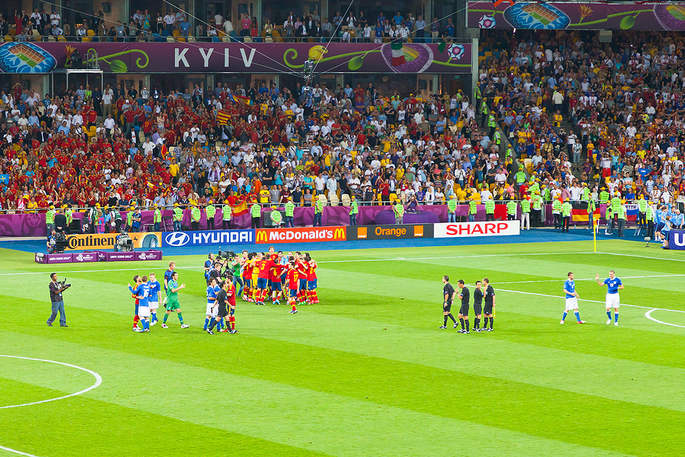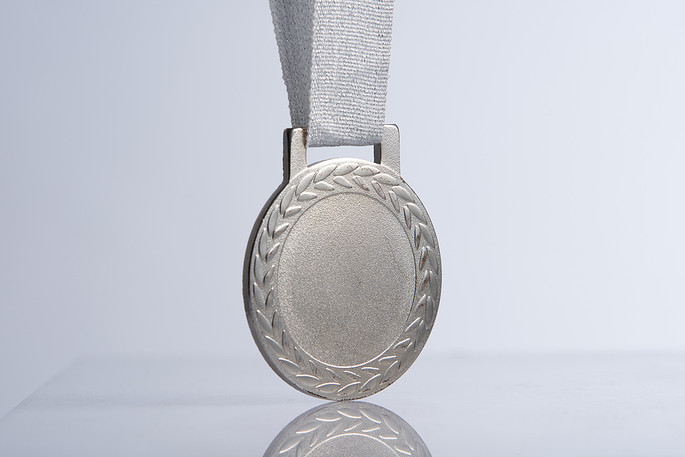 The European Championship is the second-most prestigious international competition for teams based in Europe, with only the World Cup coming ahead of it in terms of what it means for a nation to win it. You can read about back-to-back winners of FIFA’s main tournament elsewhere on the site, with this page focussing on whether or not a team has been able to remain at the peak of their powers in Europe for back-to-back competitions.
The European Championship is the second-most prestigious international competition for teams based in Europe, with only the World Cup coming ahead of it in terms of what it means for a nation to win it. You can read about back-to-back winners of FIFA’s main tournament elsewhere on the site, with this page focussing on whether or not a team has been able to remain at the peak of their powers in Europe for back-to-back competitions.
The European Championship, often referred to simply as the ‘Euros’, pits the teams that come under the auspices of UEFA against one another. The best of the best in Europe go head-to-head to be declared European champions ahead of the World Cup two years later, but how many of them have used the success of winning the competition to repeat the trick four years later?
Quick Answer: How Many Teams Have Won Back to Back Euros?
Between 1960 and 2016, only Spain in 2008 and 2012 have been able to win the UEFA European Championship in successive tournaments. After Spain, the next best performing reigning European Champions were Russia in 1964 and West Germany in 1972 who were both runners-up.
Defending Champions at the Euros
The first place to start is by looking at previous European Championships to find out which team won before then looking at the Euros that came about four years later to see how the defending champions got on. Is winning the Euros enough of a driver for a national team to repeat the trick, or does the joy of success lead teams to perhaps become complacent when the next European Championship comes around?
Performance of Reigning Champions at the Euros
| Year | Winner | Performance At Next Euros |
|---|---|---|
| 1960 | Soviet Union | Runners-Up (1964) |
| 1964 | Spain | Did not qualify (1968) |
| 1968 | Italy | Did not qualify (1972) |
| 1972 | West Germany | Runners-Up (1976) |
| 1976 | Czechoslovakia | Semi-Finalists (1980) |
| 1980 | West Germany | Group Stage exit (1984) |
| 1984 | France | Did Not Qualify (1988) |
| 1988 | Netherlands | Semi-Finals (1992) |
| 1992 | Denmark | Group Stage exit (1996) |
| 1996 | Germany | Group Stage exit (2000) |
| 2000 | France | Quarter-Finals (2004) |
| 2004 | Greece | Group Stage exit (2008) |
| 2008 | Spain | Winners (2012) |
| 2012 | Spain | Round of 16 (2016) |
In the 15 European Championships that have taken place at the time of writing, the winning team has only gone on to win it again at the following time of asking once. To some extent, this might have something to do with the fact that winning teams weren’t automatically invited back for the following iteration of the competition, instead needing to qualify like every other nation and therefore not being able to defend their title.
The winners either did not qualify for the next European Championship or else exited at the Group Stage on seven occasions, meaning that the defending champions didn’t make it to the knockout stage 43.75% of the time. If you’re thinking about having a bet on the Euros, therefore, you might want to rule out the defending champions unless there is some compelling reason not to.
All-Conquering Spain (2008 & 2012)

By vvoevale Bigstockphoto.com
The Spanish side that won the European Championship for the second successive time in 2012, becoming the first team to retain the title, was somewhat all-conquering. As well as defeating all-comers in Europe over an eight year period, the Spanish national team also won the World Cup in the intervening years, making it one of the most successful European national sides ever to play the game.
2008
Spain won the European Championship for the first time in 1964, failing to qualify for the competition four years later. When the won again in 2008, they did so in decent fashion. By winning all of their group games, Spain became only the second nation to achieve such a feat, with France having done so in 1984. They also became the first team since Germany in 1996 to win the Euros undefeated.
David Villa was the driving force behind Spain’s success, scoring four goals in the tournament on his way to winning the Golden Boot. That included a goal in the semi-finals as Spain defeated Russia 3-0, though it was Fernando Torres who scored the winning goal in the final against Germany to seal Spain’s second European Championship win. Xavi was crowned the competition’s best player, being an integral part of the team.
2012
Four years later and Spain returned to the Euros as not only the reigning European champions but also the world champions, having won the World Cup two years earlier. They drew with Italy in their opening group match, defeating Croatia and the Republic of Ireland in their other matches to qualify as group winners. This saw them play France in the quarter-finals, whom they defeated 2-0.
That set up a semi-final match against Portugal, with Spain needing penalties to make it past their geographical neighbours. The same can’t be said of the final, however, which Spain won 4-0. They played against the side they’d failed to beat in the group stage in Italy, with goals from four different goalscorers seeing them through. Fernando Torres was joint-top scorer alongside five other players, but a goal in the final was enough for him to feel he’d contributed to Spain’s success in both Euros wins.
How Did The Runners-up Do?

It seems as if winning the European Championship is such a tough task that the team that pulls it off falls away at the following attempt, more often than not. Yet what about the sides that made it to the final of the competition but then tasted defeat? Was that enough to get them fired up at the next time of asking, or is making it the final and losing just as testing as making it there and being successful?
Performance of Runners-Up at the Next Euros
| Year | Runner-Up | Performance At Next Euros |
|---|---|---|
| 1960 | Yugoslavia | Did not qualify (for 1964) |
| 1964 | Soviet Union | Fourth (1968) |
| 1968 | Yugoslavia | Did not qualify (for 1972) |
| 1972 | Soviet Union | Did not qualify (for 1976) |
| 1976 | West Germany | Winners (1980) |
| 1980 | Belgium | Group Stage exit (1984) |
| 1984 | Spain | Group Stage exit (1988) |
| 1988 | Soviet Union | Group Stage exit (1992 as the CIS) |
| 1992 | Germany | Winners (1996) |
| 1996 | Czech Republic | Group Stage exit (2000) |
| 2000 | Italy | Group Stage exit (2004) |
| 2004 | Portugal | Quarter-Finals (2008) |
| 2008 | Germany | Semi-Finals (2012) |
| 2012 | Italy | Quarter-Finals (2016) |
The Germans, it seems, do not respond well to coming close but just missing out. They did that on two occasions before going on to win the Euros the following tournament. They achieved this for the first time in 1980, having lost to Czechoslovakia in the final four years before. They then missed out in 1992 when Denmark won the competition for the first time, but got their revenge against the Czech Republic in the final in 1996.
Eight of the 16 runners-up either failed to qualify for the competition or else were knocked out in the Group Stage four years later. That means that 50% of runners-up failed to make it to the knockout stages of the tournament the year after they came within 90 minutes of being crowned European champions. Given that the stat for the winners was 43.75%, it’s fair to conclude that reaching the final is not a precursor to future success.
